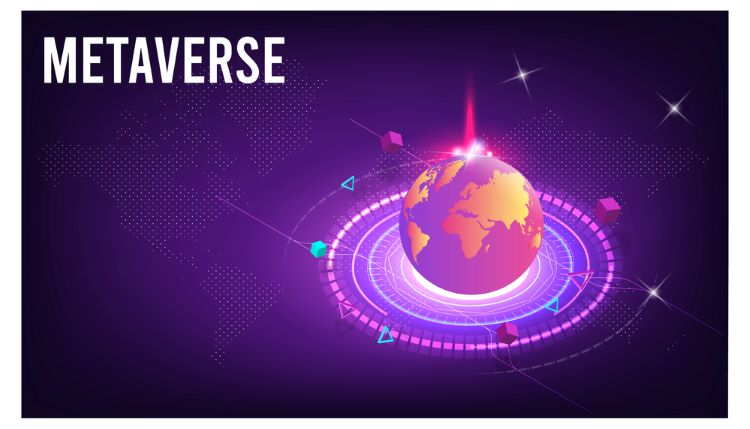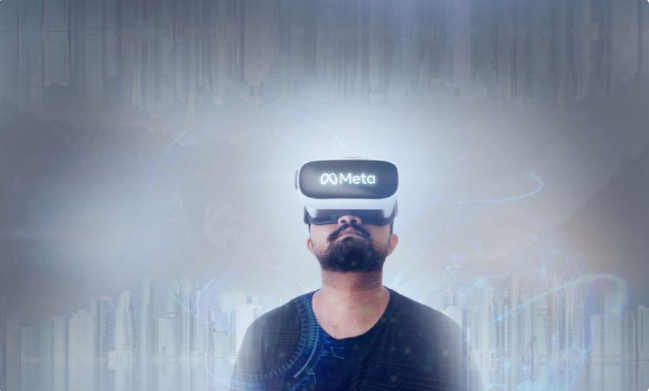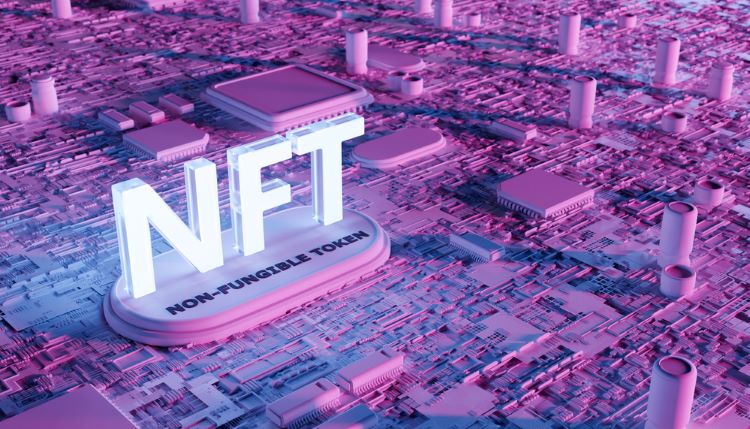Metaverse Gambling - The Coming Change in iGaming

Each time technology takes a big step forward it opens up a new universe of possibilities. With the rapid development of blockchain, we might be looking at a new technological horizon waiting to emerge: the metaverse. As is the case with blockchain, the metaverse won’t just have an effect on popular cryptocurrencies, but potentially every facet of life. Online gambling, in particular, may find itself taken to a new chapter with the metaverse.
As is the case with blockchain, the metaverse won’t just have an effect on cryptocurrencies and finance, but potentially every facet of life. Online gambling in particular may find itself taken to a new chapter with the metaverse.
What Is The Metaverse?
It’s hard to concretely define the metaverse because the concept hasn’t yet taken form. You may hear it referred to as a ‘digital civilization’ and popular sci-fi works such as Ready Player One portrays it as a virtual reality world that happens continuously for everyone in real time.

A ‘digital civilization’ is a simple term that very sufficiently represents the spirit of the metaverse. Ideally, in the metaverse, non-fungible tokens (NFTs) will be used to create authentic digital identities so as to make everyone and everything in the metaverse unique and irreplaceable. What Will Casinos Look Like in the Metaverse?
Because the metaverse as we know it is still in its infancy, it becomes a landmine of opportunities for businesses. The stats from a J.P Morgan report show this very clearly: $54 billion is spent on buying virtual goods annually, 60 billion messages are sent daily on Roblox, and the market cap for NFTs reaches $41 billion... And of course, the online gambling industry is just as heavily invested in the metaverse as anyone.
What Will Gambling in the Metaverse Look Like?
An example of what gambling in the metaverse might look like is the Sand Vegas Club in The Sandbox Game or Decentral.Games (DG) casinos in Decentraland (a blockchain open-world game containing parcels of virtual land). Decentral Games, for instance, focuses on developing 3D blockchain games, and one of their creations is the Tominoya casino (an early form of a metaverse casino) in Decentraland, and the experience here closely resembles that of the physical world.
In the Tominoya casinos, the gamblers seem to be there in great part to enjoy a good social gambling time. You don’t just click on a blackjack spot and wait for your cards to be dealt like in a traditional online casino: people used to play casino games online just to satisfy their thirst for gambling. Instead, you ‘physically’ walk around, upstairs, downstairs in this virtual world to find a table. You can also chat, make friends with others, emote to cheer for them…
This virtual casino features many casino games like blackjack, poker, slots and roulette that people can use numerous types of digital assets to bet on (ETH, DAI, MANA, ICE...). In the future when metaverse casinos take over the online gambling industry, there may be sports betting, pachinko, baccarat, keno and dice games as well. The sky is the limit.
Moreover, because Decentraland hosts way more venues than just metaverse casinos, after people play games with their friends, they can carry on to visit a digital museum or have a dance-off in a virtual concert. This is the closest thing we have to metaverse gambling, and it looks like a highly interactive and social experience that extends far beyond the traditional concept of online gambling, iGaming, or crypto casinos, into virtual real estate and other virtual services.
The Metaverse’s Effect on Gambling
Making Gambling Safer for Everyone
Gambling has long been considered a taboo not just because its reputation is blemished by scams and gambling addicts, but also because it is often employed by criminals as a money-laundering method. This is why online gambling sites enforce a strict Know-Your-Customer process to verify the identity of their customers.When online casinos moved to the decentralized sphere, it was both an innovation and a concern. It’s not difficult to see why: precisely because wallet addresses contain no information tied to the identity of the owners, it makes gambling even more susceptible to criminal activities.
When online casinos moved to the decentralized sphere, it was both an innovation and a concern. It’s not difficult to see why: precisely because wallet addresses contain no information tied to the identity of the owners, it makes gambling even more susceptible to criminal activities.All in all, the metaverse keeps decentralized gambling safe while letting players retain a great amount of privacy (you don’t have to fill in your address, phone number, ID…). The less information you give, the less anyone can take advantage of it.
However, with authentic identity expressed through NFTs in the metaverse, decentralized casinos have a way to counter money laundering. Because identity in the verse is verified by the token contained in your wallet, not the wallet itself, you can potentially use multiple wallets and casinos would still know that it’s you. This is unheard of among traditional online casinos: where you can only use one bank account and payment method for both deposits and withdrawals.
All in all, the metaverse keeps decentralized gambling safe while letting players retain a great amount of privacy (you don’t have to fill in your address, phone number, ID…). The less information you give, the less anyone can take advantage of it.
A More Social Gambling Experience
We’re living in the age of self-expression: everyone can express their opinions and personalities 24/7 through social media. Regular online casinos, however, don’t allow for much of it. Only live dealer games make an effort in creating a more social experience by letting players chat with the dealer and each other when they play poker, blackjack, and other card games.

An ideal casino in the metaverse will let players display their NFT avatar, costumes, and cosmetics as well as interact with others in meaningful ways. The experience can be further enhanced by virtual reality headsets. And you may wonder: haven't video games allowed people to choose their own skins for years now? Well, the difference is that thousands of gamers can own the same skin while your NFTs are uniquely yours, not just in aesthetics but also in their properties on the blockchain.
In this sense, the metaverse allows for maximum individualism; your appearance in it reflects your taste, personality and belief much more so than the random DNA combination that makes up your physical appearance in ‘real life’. Creating NFT Identities in the Metaverse.
The citizens of the metaverse manifest their identity through the process of tokenization, turning that identity into an object that is known to and interactable with other objects in the verse, thus authentic and real.

An Ethereum address or wallet does nothing to express someone’s identity: one can completely change their address without any traceability. But NFTs are unique so if you own Cryptopunk #939, that token will bear the mark of your identity on whichever Ethereum addresses it touches.
These NFTs can be your avatar or an ENS name; in fact, anything at all can be turned into a serialized object. And it is these objects that make humans recognizable, distinct, and irreplaceable on the metaverse.
You Build The Rules In The Metaverse
Recently, the UK Gambling Commission placed restrictions on a handful of slot features such as Bonus-Buy, auto-play, spinning speed above 2.5 seconds... The new regulations are intended to make gambling safer but nonetheless attracted controversy since many believe it’s an overreaction.
There is no ‘gambling commission’ in the metaverse. These types of virtual casinos will be bottom-up opt-in participation rather than top-down imposition. Instead of electing representatives to make decisions for them, citizens of the metaverse vote on the rules themselves. They will directly be the ones deciding which feature is healthy for players and which one is not.